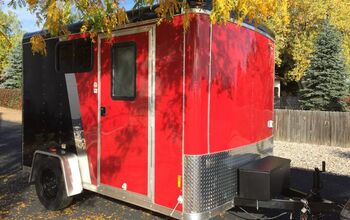The First Step to Financial Success is Honesty

Honesty is an important trait when dealing with personal finances. You need to be honest with yourself about your debt, your spending, and your financial goals. If not, then you are unlikely to build wealth and achieve financial independence.
The First Step to Financial Success is Honesty
Too many people are not honest with themselves about money and their financial situation. Many people think they can spend more than they earn and get away with being in debt for items they don’t need because we aren’t talking openly about our financial situations. If you can’t afford something, that’s perfectly okay. Being able to tell yourself no is much more impressive than going into debt for something.
You could go out right now and qualify for a loan on an expensive car, but you may not be able to afford it. There is always someone willing to loan money at terms that are not favorable to you. On the way back home in your new ride, you could stop and spend a few hundred dollars on clothes and put them on a credit card. You would look sharp in your new ride and new clothes.
The problem is you would be in debt. You wouldn’t own the car until you came up with the cash to pay the loan off. These clothes were purchased using credit, and you are paying interest on it. You would not be honest with yourself about spending, debt, and financial goals.
Be Honest About Your Current Situation
Financial success begins when you know your current situation. If your goal is financial independence or saving up for retirement; then you need to know some necessary information. You need to know how much money you owe or what is your debt?
Debt is the first giant hurdle towards financial success and independence. Now is the time for brutal honesty. How much are your student loans, car loans, mortgage, and credit card debts? Total up your net debt. There is no good or bad debt there is just debt. If you have debt and are paying the minimum amount each month, it will add up. According to the Rule of 72, a $5,000 balance on your credit cards will double eventually becoming $10,000 in about 6 (actually 6.03) years at a 12% interest rate. The time for doubling drops as the interest rate rises.
You need to know how much you make. What is your annual salary?
What is your take-home pay each month? The top line number for your salary may be impressive if you are an IT engineer, a lawyer, a doctor, and suchlike. Most people in these careers have six-figure salaries. Even if your salary is lower you need to go through this exercise and be honest with yourself. However, start subtracting all your monthly payments from your living expenses. That topline number will begin to get smaller. Be honest with yourself here about your current take home pay. If there is nothing left, or the number is negative, then it is not surprising your debt is rising.
You need to know how much you have saved. Be honest with yourself here. Is this number $0 or something greater? Do you have an emergency fund with at least six months of monthly expenses saved? I prefer 12 months. You never know what will happen, and I have lived through the dot-com crash, the Great Recession, and the COVID-19 pandemic in the past 20 years. You must prepare for the proverbial winter much like the Ant in the story about the Ant and the Grasshopper in Aesop’s Fables. If you have nothing saved, then you are not prepared.
You need to be honest about your net worth. Take your savings and subtract your debts, and that is your net worth. You need to be honest about your cash flow. Take your income and subtract your expenses, and that is your cash flow each month. If net worth is less than $0 and cash flow is negative, then you know where you stand and that the road ahead for financial success and independence will be tougher.
Be Honest About Your Spending Habits
It is also time, to be honest with yourself about your income and spending habits. This is a hard thing for many people. People spend for different reasons but in some cases, it just makes them happy or gives them a sense of joy.
Are you buying bigger or more expensive things to impress other people? The latest trends in clothing and electronics are catchy and fun. It is always easy to start a conversation when you say I just got the newest cellphone or ear pods, and they are great. The latest clothing trends are a nice look but can be expensive. A new electric car is trendy and a statement these days, but some models are costly. However, trends change, and the tech, auto, and retail giants are always updating their models and inventory to stay current and get you to buy the next thing.
If you’re not a millionaire, don’t spend your money like you are. If you’re not earning a six-figure salary and are debt-free, it’s probably safe to say you shouldn’t be spending $50,000+ on a car or racking up thousands of dollars a month in credit card bills.
As a final thought, what actually makes you happy when you spend money? Better yet, what purchases give you a sense of meaning? Being yourself may save you a lot of money.
Be Honest About Your Financial Goals
It is time, to be honest with yourself about your financial goals. If you don't have any goals, it's time to come up with some. Goals give you something to aim for, and when you have something you're aiming for, you're much more likely to make progress. For instance, paying down debt, building wealth, and financial independence are all worthy financial goals. The penultimate goal here though is to improve your financial fitness.
Your first goal should be to make a budget. Get control of your spending so that you become cash flow positive. There are plenty of ways to do that. I personally like the 50/30/20 budget rule since it is simple and easy to follow.
Is your next goal to pay down debt? If you’ve got any debt that isn’t a mortgage, that should be your first focus. Nothing slows down wealth accumulation as fast as debt that keeps growing. There are two popular techniques, which are the debt snowball method and the debt avalanche method. One should work for you. You can try saving and investing upfront, but until you get your debt paid off or at least trending in a downward direction, it will be like swimming with weights tied around your ankles for building wealth and achieving financial success.
It’s good to have an end goal for net worth, but it's important to break that final goal down into smaller chunks; so you don't get overwhelmed. Is your goal to achieve million dollars or more net worth and become financially independent? In all honesty, that's going to take many years, so you need to break that down into smaller pieces and have more reasonable goals in the early stages of building wealth in your pursuit of financial success and independence.
Little wins in life have a larger impact than you might think. Just start by making small goals for yourself each month and year, and achieving financial success and reaching financial independence will be easier. You will be more motivated than ever to continue saving and earning money. Fast forward ten years and see how much you've accomplished. The first $100k is the hardest, and that should be your first goal for net worth and build from there.
Final Thoughts on The First Step to Financial Success is Honesty
Stop telling yourself “I’ll never be able to get there” or things like that. Once you’re honest with where you’re currently at, who you are, and where you want to be, you just need to start improving one thing at a time until you’ve achieved your goal.




















Comments
Join the conversation